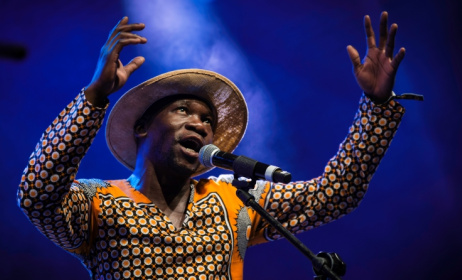Music is the most censored art form – Freemuse report
Freemuse has released a new global report that notes 711 artistic freedom violations in 93 countries last year.
 Freemuse executive director Srirak Plipat.
Freemuse executive director Srirak Plipat.
The report, titled State of Artistic Freedom 2020, says that censorship is the most common violation of artistic freedom. Other artistic freedom violations listed include murder, imprisonment, prosecution, persecution, abduction, travel ban and attacks.
The report was formulated through statistical data and qualitative interviews with artists who provided personal stories and insights about the limitations placed on artistic freedom. It singles out 13 countries, with Egypt, Nigeria and Zimbabwe listed as Africa's "countries of particular concern".
The report says music was the most targeted art form. It highlights the critical challenges artists face and mentions the various methods used to curb freedom of expression around the globe by analysing the legal, political and social developments in the focus countries. Nine artists were killed in eight countries – two in Uganda and one in Chile, Colombia, El Salvador, Iraq, Mali, Russia, and the US.
"Freemuse research determines that artists and artistic freedom defenders are silenced for expressing political views, questioning religious and social norms and in other ways publicly presenting opinions, which oppose dominant narratives," the report says.
"They are increasingly targeted by nationalist-populist governments determined to suppress dissent. States have introduced new laws and policies to their national legislations or illegitimately used already existing legal provisions as measures to stifle dissent."
Women continue to face discrimination in countries that impose legal obstacles on their participation in the cultural sector. Forty percent of violations of women’s artistic freedom was in the Middle East and North Africa. The report says governments committed 57% of all censorship, which places them at the centre of artistic violations globally. Other violators include religious authorities, private entities and social media and streaming platforms such as Twitter, Facebook, Twitch and YouTube.
The report dedicates two pages of recommendations to civil society bodies, cultural organisations, social media platforms, the UN and relevant international organisations and governments.
The report was launched by Freemuse executive director Srirak Plipat during a World Art Day webinar on 15 April.
Download the full report below (attached).





























Comments
Log in or register to post comments